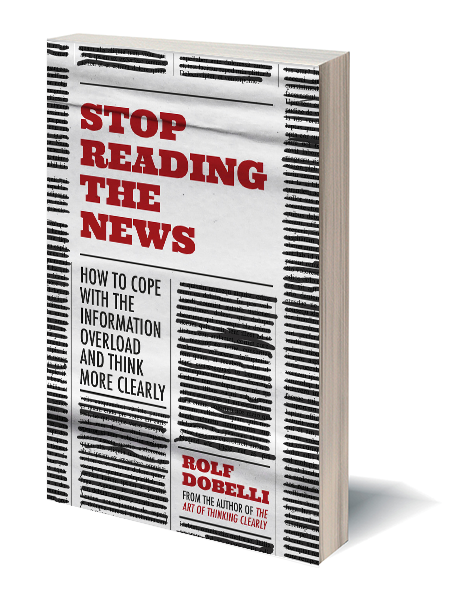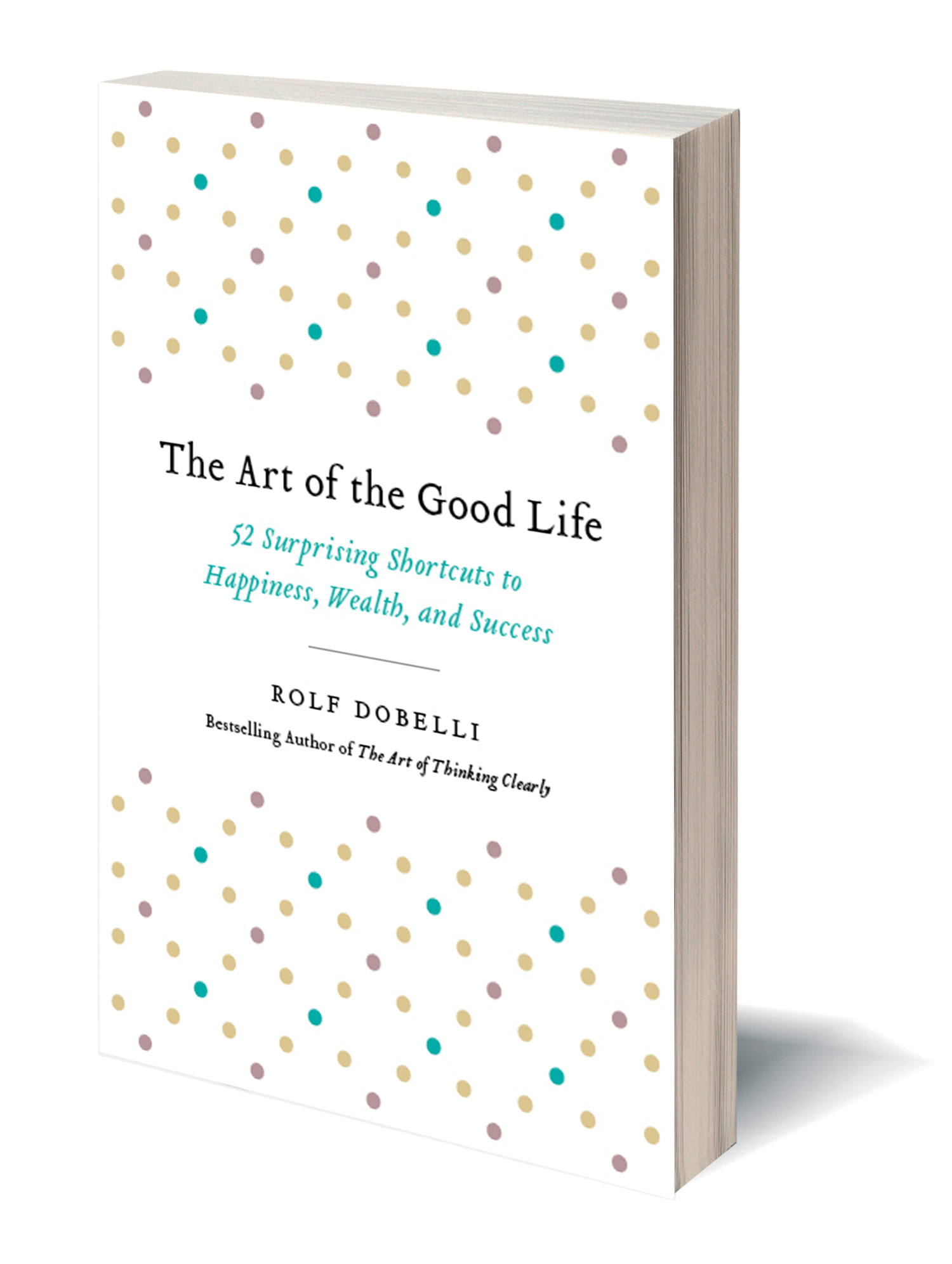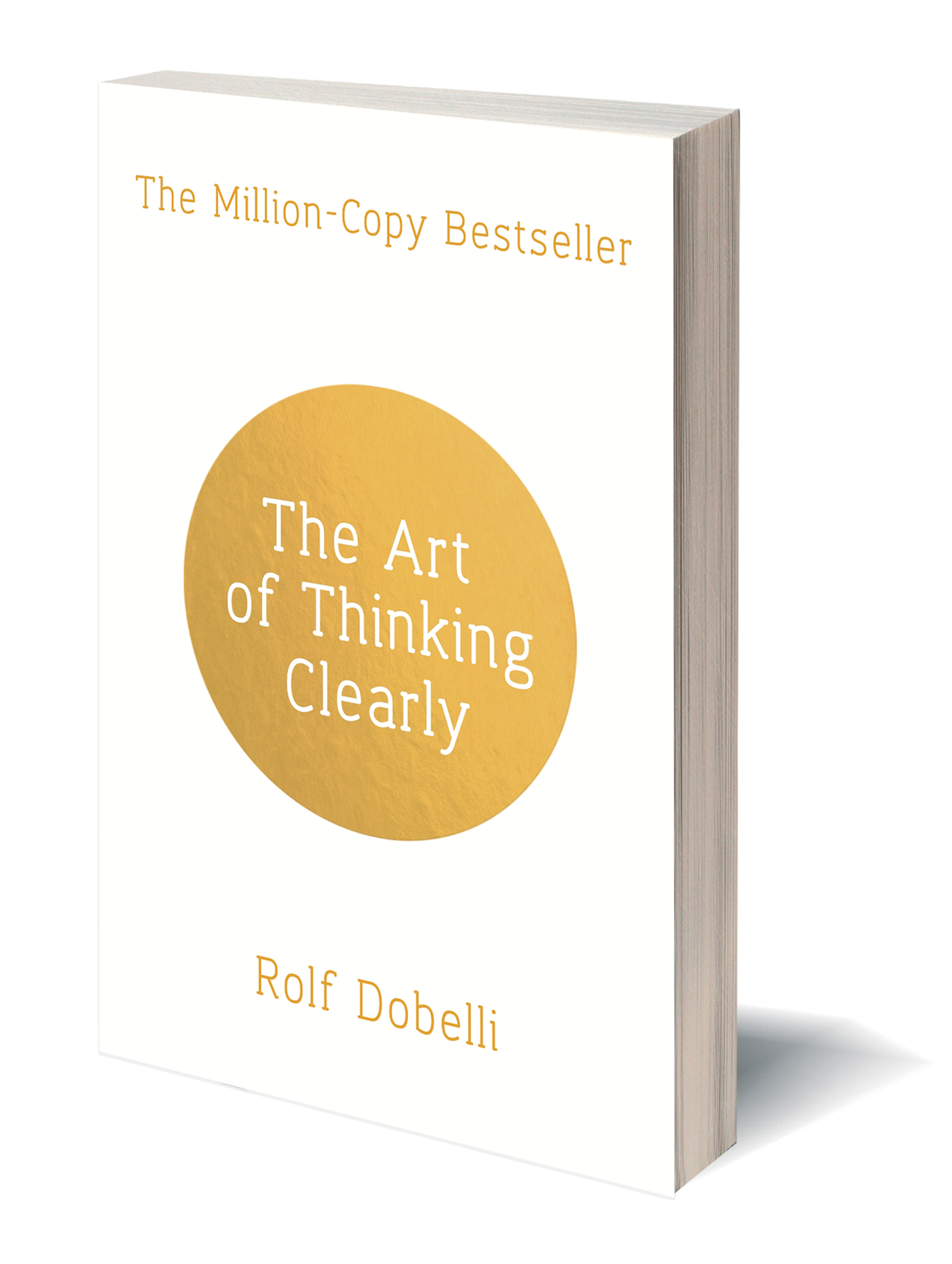Stop Reading the News
News is to the mind what sugar is to the body.
How often do you check the headlines? How often do you scroll through your news feed?
In 2013 Rolf Dobelli stood in front of a room full of journalists and proclaimed that he did not read the news. It caused a riot. Now he finally sets down his philosophy in detail. And he practices what he preaches: he hasn’t read the news for a decade.
STOP READING THE NEWS is Dobelli’s manifesto about the dangers of the most toxic form of information – news. He shows how it damages our concentration and disrupts our well-being, and how a misplaced sense of duty can misdirect our behaviour.
He gives the reader guidance about the many potential gains to be had in a life without a 24-hour news cycle: less distraction, more time, less anxiety, more insights. In a world of increasing disruption and division, STOP READING THE NEWS is a welcome voice of calm and wisdom.
“Rolf Dobelli possesses one of Europe’s finest minds.”
Matt Ridley, author of the “Evolution of Everything”
The Art of the Good Life
Since antiquity, people have been asking themselves what it means to live a good life. How should I live? What constitutes a good life? What’s the role of fate? What’s the role of money? Is leading a good life a question of mindset, or is it more about reaching your goals? Is it better to actively seek happiness or to avoid unhappiness?
Each generation poses these questions anew, and somehow the answers are always fundamentally disappointing. Why? Because we’re constantly searching for a single principle, a single tenet, a single rule. Yet this holy grail — a single, simple path to happiness — doesn’t exist.
The Art of the Good Life is a toolkit designed for practical living. Fifty-two happiness hacks – from guilt-free shunning of technology to gleefully paying your parking tickets – that are certain to optimize your happiness. These tips may not guarantee you a good life, but they’ll give you a better chance (and that’s all any of us can ask for).
“Dobelli is clear, intelligent and convincing.”
Gerhard Schröder, former Federal Chancellor of Germany
“Rolf Dobelli is brilliant at converting evidence from scientific research into practical steps that improve personal outcomes.”
Robert B. Cialdini, author of bestsellers “Influence” and “Pre-Suasion”
“Rolf Dobelli possesses the fascinating knack to present modern scientific insights in an inspiring and thrilling way.”
Bruno S. Frey, Professor of Economics, University of Basel, and founder of the field of economic happiness research
“Rolf Dobelli is a virtuosic synthesizer of ideas. With wit, grace, and precision he melds science and art in his joyful pursuit of wisdom.”
Joshua Greene, professor of psychology, Harvard University, and author of “Moral Tribes”
“Rolf Dobelli has done it again! Not only does he open our eyes, now he wakes us up. Because of his rigorous scientific analysis combined with his shattering philosophical approach, he is never satisfied with the superficial. So, grab Rolf’s book and don’t let it go!”
Tenley E. Albright, Director, MIT Collaborative Initiatives and Professor Emeritus, Harvard Medical School
“Rolf Dobelli gives us as valuable advice about how to live as he did about how to think.”
James R. Flynn, Professor Emeritus, University of Otago, and discoverer of the Flynn Effect
“Rolf Dobelli has a gift for identifying the best ideas in the world and then putting them together in ways that make the whole even more valuable than the sum of the parts. He’s done it for the art of thinking. Now he does it for the art of living.”
Jonathan Haidt, Professor of Ethical Leadership, NYU Stern School of Business, and author of the New York Times bestseller “The Righteous Mind”
The Art of Thinking Clearly
“I am primarily a novelist. In writing this book, I think of myself as a translator whose job it is to interpret and synthesize what I’ve read and learned. My great respect goes to the researchers who, in recent decades, have uncovered these behavioral and cognitive errors. The success of this book is fundamentally a tribute to their research. I am enormously indebted to them.”
(Rolf Dobelli, Introduction to The Art of Thinking Clearly)
“If you want to learn how simple errors in everyday thinking hold us back from living well, you must read Rolf Dobelli’s masterly guide to human irrationality.”
(John Gray, Professor at the London School of Economics and author of STRAW DOGS)
“A fireworks show of insights into how our minds work. If you want to avoid tripping on cognitive errors, read this book.”
(Iris Bohnet, Professor and Academic Dean Harvard Kennedy School, Director of the Harvard Decision Science Laboratory)
“Dobelli examines our most common decision-making failings with engaging eloquence and describes how to counter them with instructive good sense.”
(Robert Cialdini, Author of the bestseller Influence)
“The book that immediately spoke to my heart.”
(Ingvar Kamprad, Founder of IKEA)
“A practical manifesto. In a world full of cognitive errors, Rolf Dobelli shows us how to avoid them elegantly. This book belongs on the desk of every CEO.”
(Ton Büchner, CEO AkzoNobel – a 15bn EUR company)
“This book provides a truly fresh perspective. It is intelligent, informative, and witty. Rolf Dobelli’s clear prose illuminates how we think.”
(Christoph Franz, Global Chairman, Roche)
“This book will change the way you think.”
(Prof. Dan Goldstein, London Business School)
“Dobelli, the entrepreneur and founder of companies, writes authentically without being snobbish. His chapters are entertaining, full of anecdotes, and he supports his view points with scientific knowledge.”
(Financial Times Germany)
“Dobelli pinpoints exactly the assumptions, bias and illusions that shape our thinking and decision-making processes in both business and personal relationships.” (Financial Times UK & USA)
“Where he (Dobelli) makes his contribution is by pulling all this together, setting it side by side, and forcing us to stand back and think.” (Wall Street Journal)
“Dobelli examines cognitive errors we make in order to avoid them in the future. His book is written in engaging prose.” (WSJ Money)


